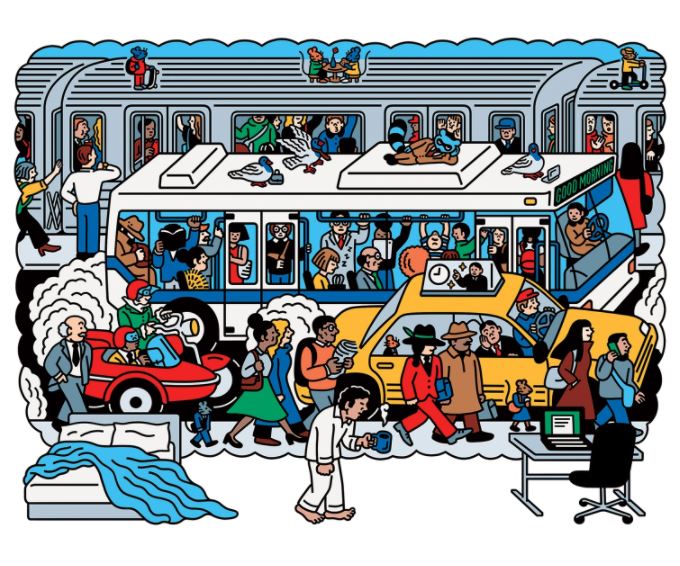Helpful hints for those who will work at home – from The Atlantic:
Many people liberated from the commute have experienced a void they can’t quite name. In it, all theaters of life collapse into one. There are no beginnings or endings. The hero’s journey never happens. The threshold goes uncrossed. The sack of Troy blurs with Telemachus’s math homework. And employers—even the ones that have provided the tools for remote work—see cause for alarm. “No commute may be hurting, not helping, remote worker productivity,” a Microsoft report warned last fall. After-hours chats were up 69 percent among users of the company’s messaging platform, and workers were less engaged and more exhausted. …
In a 2001 paper, two researchers at UC Davis attempted to divine the ideal commute time. They settled on 16 minutes. To be sure, this was a substantial shortening of the study participants’ actual commutes (which were half an hour, on average). But it was not zero. In fact, a few wished for a longer commute. Asked why, they ticked off their reasons—the feeling of control in one’s own car; the time to plan, to decompress, to make calls, to listen to audiobooks. Clearly, the researchers wrote, the commute had some “positive utility.” …
Broadly, boundary theory holds that however much Facebook encourages employees to bring their “authentic selves” to work, we have multiple selves, all of them authentic. Crossing between one role and another isn’t easy; it’s called boundary work. …
Consider the morning drive in. While superficially a matter of on- and off-ramps, it also initiates a sequence in which the feelings and attitudes of home life are deactivated, replaced by thoughts of work. This takes time, and if it doesn’t happen, one role can contaminate the other—what researchers call “role spillover.” “If you respond like a manager at home, you might be sleeping on the couch that night,” Jachimowicz explained. “And if you respond like a parent at work,” it’s weird. …
Now we have to ask: What if the commute never comes back—or at least not every weekday? Can we replace it? …
I developed a set of tricks. Matching my surroundings with the task at hand seemed important. Deep research was best done in the stacks of a nearby library; writing, in coffee shops. Commuting directly from the desk to the dinner table was a bad idea. A run or stroll outside first. But no strolling in the a.m. Mornings, you walk like you’re late for something. Above all: An underdressed day is an unproductive day. So if a deadline looms, out comes the writing blazer. In office attire, you can’t take out the trash or water the lawn without a strong feeling that you ought to be doing something else. Like your job.
I was pleased to find an entire academic paper called “Enclothed Cognition” that backed me up on this. When people are asked to do a difficult task involving visual concentration, they make about half as many errors if they first put on a white lab coat. (If they’re told it’s a painter’s coat, it helps, but only marginally.) The coat has a symbolic power, the paper says, which “is not realized until one physically wears and thus embodies the clothes.”…
With meditation exercises, costume changes, and chatbots, you too can replicate what the commute did for you.














I can’t remember ever referring to my ‘journey’ to work as a commute…because I generally looked forward to it as I was walking, riding my bike or skateboard or scoring a window seat on the bus. I associate the word commute with jail…as in ‘commuted sentence.’
I think a key thing was I took more time for my journey to work or home so there was time to enjoy it. Over the years I’ve had a whole lot of fun, some good exercise and some memorable observations from a bus window. Also, I chose the trolley over the B-line because I almost always got a seat on the trolley bus.
So what does that mean for dressing casually at the [real] office?